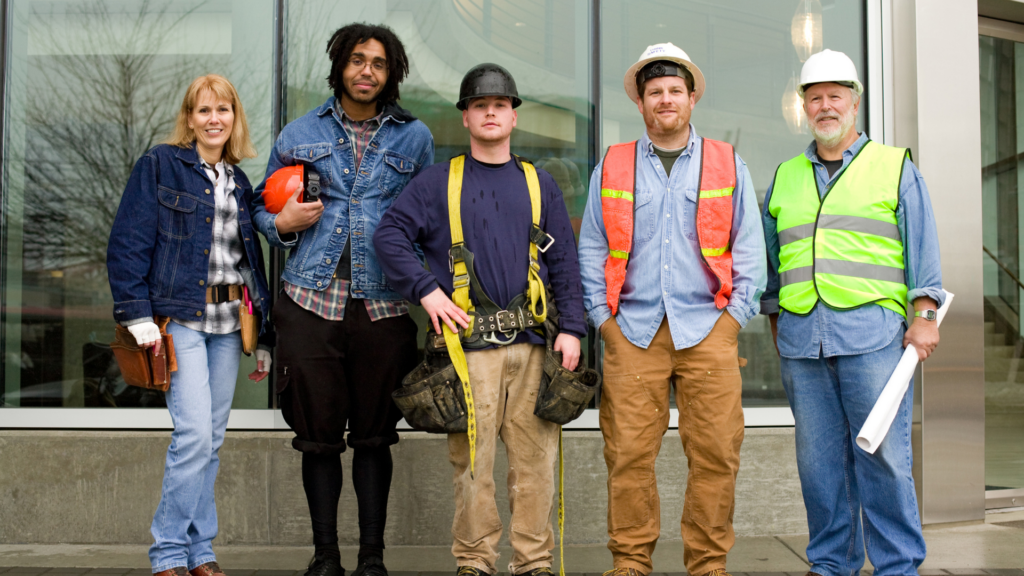In Canada, all workers have rights. Unions, through collective bargaining, increase those rights and make sure employers honour them.
Under the law in Alberta, you have legal rights as a worker. According to the provincial government, this starts with three basic worker rights, which are:
- The right to refuse dangerous work and know you’re protected from reprisal.
- The right to access to basic health and safety information.
- The right to participate in health and safety discussions and committees.
You also have one essential right: the right to join or form a union.
If you work in a non-unionized workplace, you might not be aware of this right. Most employers resist bringing a union into their company. You might hear that it’s “easier” to negotiate one-on-one with employees or that unions are limiting, but a union can be your voice — it can ensure you and your co-workers are treated fairly and it can hold management accountable. Teamsters 987 can help you learn more about the first steps.
Worker rights in the changing economy
As our economy changes, it’s more important than ever to understand worker rights. The gig economy accounts for 5% of employment in Alberta — the highest of any province — and is known for offering low wages and few protections. The people who rely on gig work as their main source of income often lack job security, have poor access to benefits, and have fewer legal protections.
While organizations like the Workers Rights Consortium exist to demand better conditions for factory workers around the globe, so far there’s no similar independent body watching out for gig workers.
Other non-unionized workers are facing employment challenges, too. While the average wage for union members is on the rise, non-unionized workers are dealing with wage stagnation, lack of access to benefits, and poor job security. As these problems continue to grow, labour unions continue to fight for fair treatment — in every industry.
There’s power in numbers
While employers legally must make sure a workplace addresses the three basic worker rights, there are parts of employment that unions can negotiate — usually through collective bargaining — such as improving your conditions of employment for things like wages and benefits, better job security and generally helping to make lives better for their members.
Stronger protections for Alberta workers’ rights.
In non-unionized workplaces, workers can be fired without cause at any time, as long as employers follow the labour law in Alberta. In unionized workplaces, workers are much more protected, there are deeper investigations into the cause, and the union is involved in every step of the process.
Higher wages.
According to the Canadian Labour Congress, Alberta workers who belong to a union earn, on average, 15% more per hour than non-union workers. Nationally, unionized workers make, on average, $7 more per hour than non-unionized workers. That’s a minimum of roughly $14,000 more annually for full-time employees.
Better benefits plans.
More than 80% of unionized workers have benefits plans, compared to just 56% of non-unionized workers. They also have better access to parental leave, disability insurance, and workers’ compensation. On top of all those things, more than 80% of unionized workers have access to pension plans, compared to just 36% of non-unionized workers.(Source: Canadian Labour Congress)
Better paid leave.
Taking a sick day can be a huge financial burden if a job doesn’t provide an adequate paid leave. Union workers often have better sick days, which in turn keeps illness from making the rounds. More flexible leave also supports workers’ families — how much easier is life when you can take a day off to look after a sick child or take an elderly parent to an appointment without worrying about your pay or losing your job?
Ongoing support, career development, and education.
Unions help members with far more than contract negotiation or dispute resolution. Teamsters 987 offers ongoing support through our business agents, which helps workers understand their rights and employers’ responsibilities. We also provide opportunities for our members to connect with others in their industry to learn about skill development or career advancement.
What’s next?
If you work in a non-unionized workplace, it’s important to understand your rights — and know that you have the right to organize. You can learn more about the first steps and how to get started or reach out to your Teamsters 987 representative (outside of work hours) to confidentially learn more. We’re always here to help.






Comments are closed.